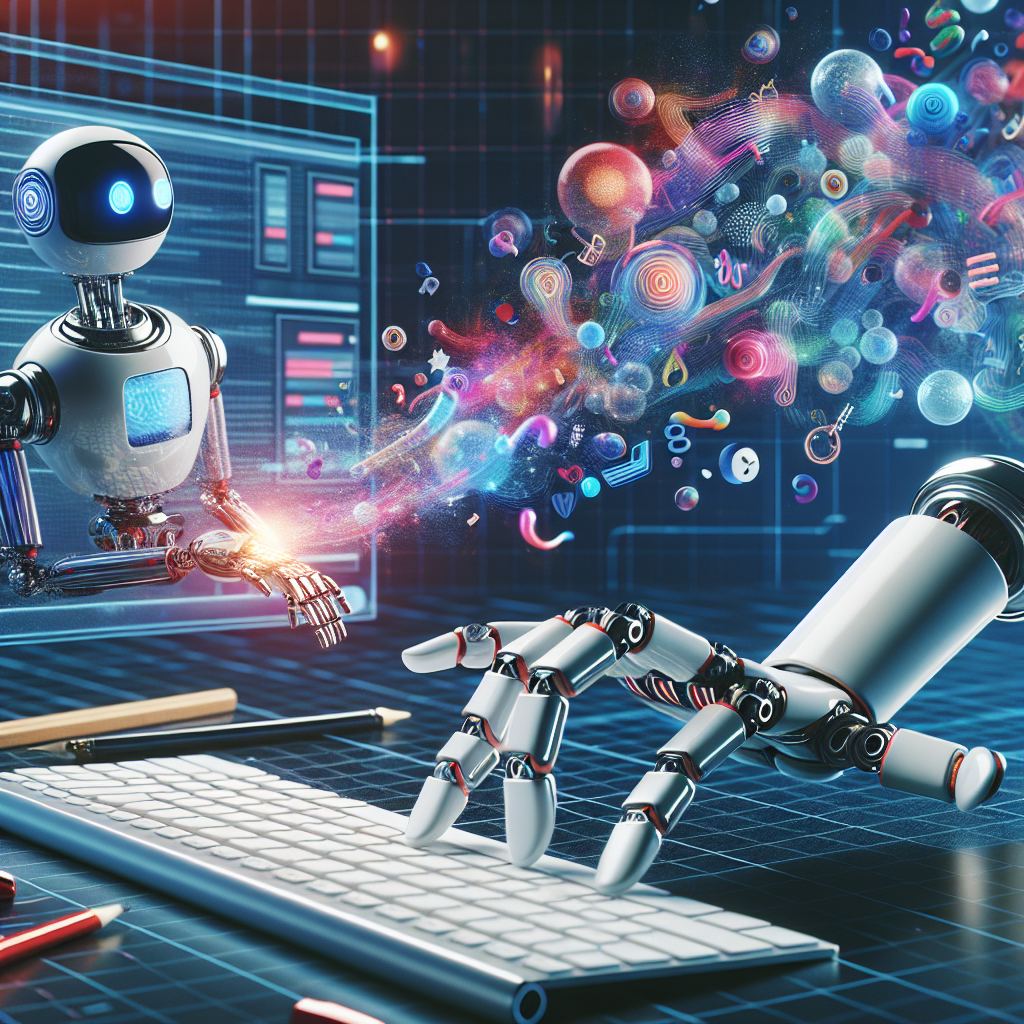Here’s a rewritten version of your content with the HTML tags retained:
In a time marked by digital evolution, the incorporation of artificial intelligence (AI) in content creation has significantly altered the marketing realm. From automating repetitive tasks to boosting creativity, AI technologies are becoming essential tools for marketers aiming to engage their audiences effectively. This article delves into how AI is transforming content creation, balancing quality with creativity, and the implications for marketing strategies.
The Emergence of AI in Content Creation
Traditionally, content creation has been a labor-intensive endeavor, relying heavily on human intuition, creativity, and expertise. However, with the progression of AI, businesses now harness technology to optimize and enhance their content production processes. From crafting articles and designing visuals to interpreting audience preferences, AI has established a new paradigm where quality and creativity can flourish simultaneously.
Core AI Technologies in Content Creation
-
Natural Language Processing (NLP):
- NLP technologies empower machines to comprehend and produce human language. Tools like GPT-3 exhibit exceptional skill in generating coherent and captivating written material—from blog entries to social media posts. Businesses employ these tools to quickly draft substantial amounts of text, ensuring consistency and high accuracy.
-
Machine Learning Algorithms:
- Machine learning analyzes consumer data, assisting marketers in forecasting trends and preferences. By utilizing historical data, these algorithms guide content strategies, ensuring materials resonate with audience interests and behavior.
-
Image and Video Generation:
- AI-based applications like DALL-E and Canva’s AI capabilities enable automated creation of images and videos. These tools support marketers in producing high-quality visual content that grabs attention without needing advanced graphic design knowledge.
- Content Personalization:
- AI excels in offering personalized content experiences by examining user behavior and preferences. Marketers can leverage this data to customize messages for specific audience segments, boosting engagement and conversion rates.
Quality Automation: The Impact of AI
One of AI’s most prominent contributions to content creation is its capability to automate quality assurance processes. Here are some ways AI enhances quality:
-
Predictive Analytics: AI tools can evaluate content performance metrics in real time, enabling marketers to refine strategies based on data-driven insights. This agility ensures that only the highest-quality content reaches the target audience.
-
Grammatical and Structural Refinements: AI-driven grammar checkers and style guides like Grammarly can simplify the editing process, guaranteeing that content is polished and professional prior to publication.
- SEO Optimization: AI can assess keyword trends and recommend optimized content structures that improve search engine visibility, allowing brands to achieve greater online reach.
Boosting Creativity with AI
While AI automates various aspects of content creation, it can also stimulate creativity. Here are some ways AI nurtures innovation:
-
Idea Generation: AI can propose topic ideas, helping writers surpass creative blocks. This capability allows marketers to investigate new angles and content concepts they may not have initially considered.
-
Augmented Creative Tools: Features powered by AI, like those in Adobe, offer creative suggestions and edits, assisting designers in creating compelling visuals that resonate with audiences.
- A/B Testing and Iteration: AI facilitates rapid testing of diverse content formats and variations, enabling marketers to discern the most effective options and iterate swiftly based on audience feedback.
Challenges and Considerations
While the advantages of AI in content creation are substantial, there are challenges to keep in mind:
-
Creativity vs. Automation: Although AI can boost creativity, over-reliance on it can lead to formulaic content. Finding the right balance between human creativity and AI support is vital.
-
Ethical Considerations: The automatic generation of content brings forth issues of originality, copyright, and misinformation. Brands must maintain transparency regarding AI’s role in their content strategies.
- Human Element: Audiences seek authenticity. Companies must ensure that, despite AI’s involvement, the human voice and brand identity remain evident in their messaging.
Conclusion
The integration of AI into content creation and marketing is reshaping the industry, providing tools that enhance both quality and creativity. By analyzing data, automating tedious tasks, and facilitating creative processes, AI has emerged as a powerful ally for marketers. Nevertheless, as we adopt these technologies, it remains crucial to preserve the human touch that fosters genuine connections with audiences.
As AI continues to evolve, its role in content creation is likely to expand, paving the way for even more innovative marketing approaches. Businesses that embrace this transformation will position themselves at the edge of a new marketing era, where creativity and efficiency live in harmony.

